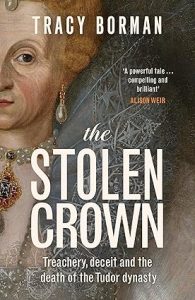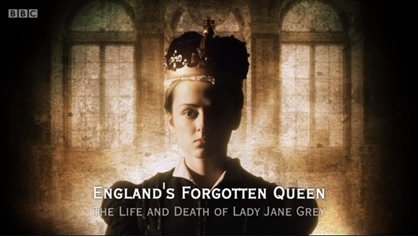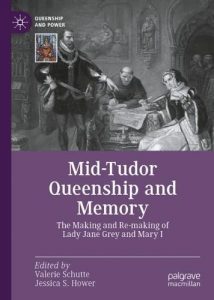‘Note, that on tuisdaie the xxixth of Auguste, I dyned at Partrige’s house with my lady Jane, being ther present, she sitting at the bordes end, Partige, his wife, Jacob my ladyes gentill woman, and hir man. She commanding Partrige and me to put on our capes, emongest our communycacion at the dyner, this was to be noted: after she had one or twice droncke to me and bad me hartellie welcome, saithe she, “The queens majesty is a merciful princes; I beseche God she may long continue, and sende his bountefull grace apon hir.” After that, we fell in…mattiers of religion; and she axed what he was that preched at Polles on sonday before; and so it was tolde hir to be one… “I praie you,” quod I, “in some places.” “Yt may so be,” quod she, “yt is not so strange as the sodden convertyon of the late duke; for who woulde have thought,” saide she, “he would have so don?” Yt was aunwered her, “Perchance he thereby hoped to have had his pardon.” “Pardon?” quod she; “wo worthe him! he hath brought me and our stocke in most miserable callamyty and mysery by his exceeding ambicion. But for th’ aunswering that he hoped for life by his tourning, thoughe other men be of that opinion, I utterly am not; for what man is ther lyving, I pray you, although he had been innocent, that wolde hope of life in that case; being in the felde ageinst the queen in person as generall, and after his taking so hated and evell spoken of by the comons? and at his coming into prison so wonderyed at as the like was never harde by any man’s tyme. Who was judge that he shoulde hope for pardon, whose life was odyous to all men? But what will ye more? Like as his life was wicked and full of dissimulaciom, so was his ende thereafter. I pray God, I, nor no frende of myne, dye so. Shoulde I, who (am) yonge and in my fewers, forsake my faythe for the love of lyfe? Nay, God forbed: moche more he should not, whose fatall course allthoughe he had lyved his just noumber of yeres, could not have long continued. But life was swete, it appeered; so he might have lyved, you will saye, he dyd (not) care howe. Indede the reason is goode; for he that wolde have lyved in chaynes to have had his lyfe, by like wold leave no other meane attempted. But God be mercyfull to us, for he sayeth, Whoso denyeth him before men, he will not knowe him in his Father’s kingdome.” With this and moche like talke the dyner passyd away; which ended, I thanked her ladyship that she would witsafe accept me in hir companye; and she thancked me likewise, and sayd I was wellcoem. She thancked Partrige also for brining me to dyner. “Madam,” saide he, “wee wer somewhat bolde, not knowing that your ladyship dyned belowe untyll we fonde your ladyship ther.” And so Partrige and I departed.’
The Chronicle of Queen Jane and of Two Years of Queen Mary, and Especially of the Rebellion of Sir Thomas Wyat
p.24-26





































